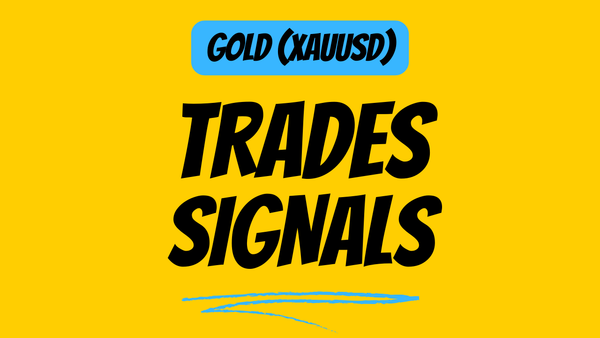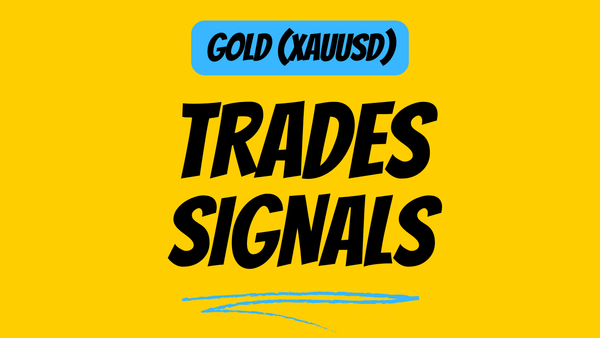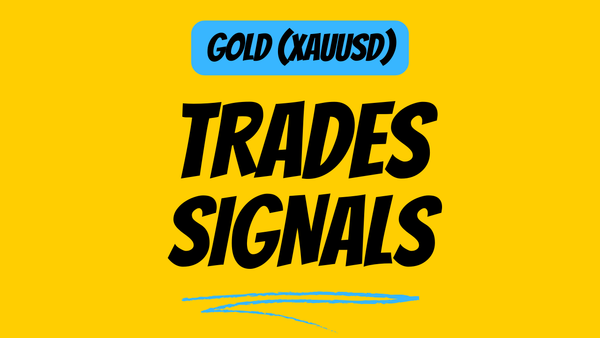Chapter 1: Understanding Financial Markets and their Participants

TL;DR
- Understanding the different types of financial markets
- Different types of market participants
- How the market reacts to all available information in a financial market.
Disclaimer: I am not a financial advisor. The content for this article is purely for educational/research purposes only and is merely based on my personal opinions.
Please note: There will be affiliate links in this article. But it will only benefit both of us. If you do not wish to participate under my affiliate links, please feel free to Google them separately. Cheers!
For Experienced traders only
Skip the basics and head straight to the real meat of our blog! [A Step-by-Step Breakdown of My Unique Trading Strategy] Delve into our main strategy guide and take your trading skills to the next level. No need to dwell on the fundamentals – let's fast-track to the valuable insights that can elevate your trading game. Click the link above now and immerse yourself in the strategy that matters most. It's time to master the markets like never before!
Financial markets play a vital role in our global economy, facilitating the buying and selling of various assets. Whether you're considering investing in stocks, trading currencies, or exploring the world of derivatives, understanding financial markets is crucial for success. In this blog post, we will provide a comprehensive beginner's guide to help you grasp the fundamentals of financial markets and their participants.
Introduction to Financial Markets
Financial markets are platforms where individuals, companies, and institutions trade financial assets such as stocks, bonds, currencies, commodities, and derivatives. These markets serve several essential functions, including capital allocation, price discovery, and risk management.
To begin, let's explore some of the main types of financial markets:
Stock Market
The stock market enables the buying and selling of stocks/shares issued by publicly traded companies. Investors can participate in stock markets to own a portion of a company and potentially benefit from its growth and dividend.
Bond Market
The bond market facilitates the buying and selling of debt securities, commonly known as bonds. Governments and corporations issue bonds to raise capital. Investors can buy bonds and earn interest income over a specified period until the bonds mature. Essentially, lending money to the government and receiving interest.
Foreign Exchange (Forex) Market
The forex market is where participants trade different currencies. This decentralized market allows individuals, companies, and financial institutions (Everyone and anyone) to exchange currencies based on their needs for international trade, investment or trading for income.
Commodity Market
The commodity market deals with the buying and selling of raw materials or primary goods, such as gold, oil, agricultural products, and metals. Commodity markets help producers, consumers, and investors manage price risks associated with these essential resources. The most traded commodity is Gold (XAUUSD) in the forex market.
Derivatives Market
Derivatives are financial instruments whose value is derived from an underlying asset. Derivatives markets include options, futures, swaps, and forwards. These markets provide opportunities for hedging, speculation, and managing financial risks. Most players combine the stock market and the options market to generate extra income on top of owning stock/shares.
Market Participants
Financial markets involve a diverse range of participants, each with different roles, motivations, and strategies. Let's take a closer look at some of the main market participants:
Institutional Investors
These include pension funds, mutual funds, hedge funds, and insurance companies. Institutional investors manage large pools of capital on behalf of individuals or organizations, investing in various financial assets. These are essentially the big player that can shift the entire market around.
Retail Traders
Retail traders are individual investors who participate in financial markets on their own behalf. They typically trade smaller volumes compared to institutional investors and may have different investment objectives and risk tolerances. These trader has no impact on the entire market and usually the ones that loses the most money, especially beginner traders. I am a retail trader in the forex market, trying to make a living by trading in the forex market.
Market Makers
Market makers are individuals or firms that provide liquidity to the financial markets by offering to buy or sell assets. They facilitate smooth trading by ensuring there is always a buyer or seller for a given asset.
High-Frequency Traders
High-frequency traders use sophisticated algorithms and technology to execute a large number of trades within fractions of a second. They aim to profit from small price discrepancies and market inefficiencies. They commonly seen as either AI or robot trading, often associated with cryptocurrencies.
Understanding the different market participants is important as their actions can influence market dynamics, liquidity, and asset prices.
Market Efficiency
Market efficiency refers to how quickly and accurately prices reflect all available information in a financial market. Understanding market efficiency is essential for traders and investors, as it impacts the effectiveness of their strategies. There are three forms of market efficiency:
Weak Form Efficiency
Weak form efficiency suggests that past price and volume data cannot predict future prices accurately. In other words, historical data, such as stock price patterns, should not provide an advantage in predicting future movements.
Semi-Strong Form Efficiency
Semi-strong form efficiency implies that public information, including financial statements, news, and economic data, is quickly and accurately reflected in asset prices. Therefore, it is challenging to consistently outperform the market based on publicly available information.
Strong Form Efficiency
Strong form efficiency states that all information, whether public or private, is already incorporated into asset prices. This form of efficiency suggests that it is nearly impossible to consistently gain an advantage by accessing non-public information.
Understanding market efficiency helps traders and investors set realistic expectations and develop strategies that align with the prevailing market conditions.
EndNote
Financial markets are complex ecosystems where various assets are bought and sold. By gaining a foundational understanding of financial markets and their participants, you can navigate these markets with confidence. In this blog post, we explored different types of financial markets, including the stock market, bond market, forex market, commodity market, and derivatives market. We also discussed market participants, such as institutional investors, retail traders, market makers, and high-frequency traders. Lastly, we touched upon the concept of market efficiency and its three forms: weak, semi-strong, and strong.
As you continue your journey into the world of financial markets, remember that markets are dynamic and constantly evolving. Deepening your knowledge and staying updated with market developments will help you make informed trading and investment decisions.




